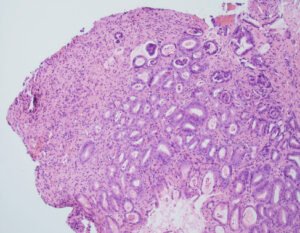Overview
Resistant hypertension is a form of high blood pressure that remains uncontrolled despite the use of three or more antihypertensive medications, including a diuretic, at optimal doses. It poses a significant risk for cardiovascular events and requires specialized diagnosis and management. Korea offers advanced clinical evaluations and tailored treatment strategies for resistant hypertension.
What is Resistant Hypertension?
Resistant hypertension is defined as blood pressure that stays above the target level despite adherence to a regimen of at least three antihypertensive drugs. It may be due to secondary causes or poor medication adherence, and requires comprehensive evaluation.
Symptoms
- Often asymptomatic despite high blood pressure
- Headaches, dizziness, or blurred vision in some cases
- Symptoms related to hypertension complications such as chest pain or shortness of breath
Causes
- Secondary hypertension causes such as renal artery stenosis, primary aldosteronism, or obstructive sleep apnea
- Inadequate medication adherence or suboptimal therapy
- Lifestyle factors including obesity, high salt intake, and excessive alcohol use
Risk Factors
- Older age
- Obesity and metabolic syndrome
- Chronic kidney disease
- Diabetes mellitus
- Excessive alcohol consumption
- Family history of hypertension
Complications
- Increased risk of heart attack, stroke, and heart failure
- Kidney damage and chronic kidney disease
- Vision loss due to hypertensive retinopathy
- Cognitive impairment
Prevention
- Regular blood pressure monitoring
- Lifestyle modifications including diet, exercise, and weight control
- Adherence to prescribed medication regimens
- Early screening for secondary causes in high-risk individuals
Treatment Options in Korea
Diagnosis
- Ambulatory blood pressure monitoring to confirm resistance
- Laboratory tests and imaging to identify secondary causes
- Evaluation of medication adherence and lifestyle factors
Medical Treatments
- Optimization of antihypertensive drug regimens including addition of mineralocorticoid receptor antagonists
- Management of secondary causes such as surgical or interventional treatment for renal artery stenosis
- Use of combination therapies tailored to patient needs
Interventional & Surgical Treatments
- Renal denervation therapy for selected patients
- Surgical correction of underlying causes like adrenal tumors
Advanced Therapies
- Personalized medicine approaches based on genetic and metabolic profiling
- Integration of multidisciplinary teams including cardiologists, nephrologists, and endocrinologists
Rehabilitation and Support
- Patient education on lifestyle and medication adherence
- Regular follow-up and blood pressure monitoring
- Support groups and counseling for chronic disease management
Top Hospitals or Clinics in Korea for Resistant Hypertension
- Seoul National University Hospital – Leading center for hypertension and vascular medicine
- Asan Medical Center – Advanced diagnostics and intervention for resistant hypertension
- Samsung Medical Center – Specialized in renal denervation and hypertension management
- Yonsei Severance Hospital – Multidisciplinary approach to complex hypertension cases
- Korea University Anam Hospital – Expertise in secondary hypertension and personalized care













